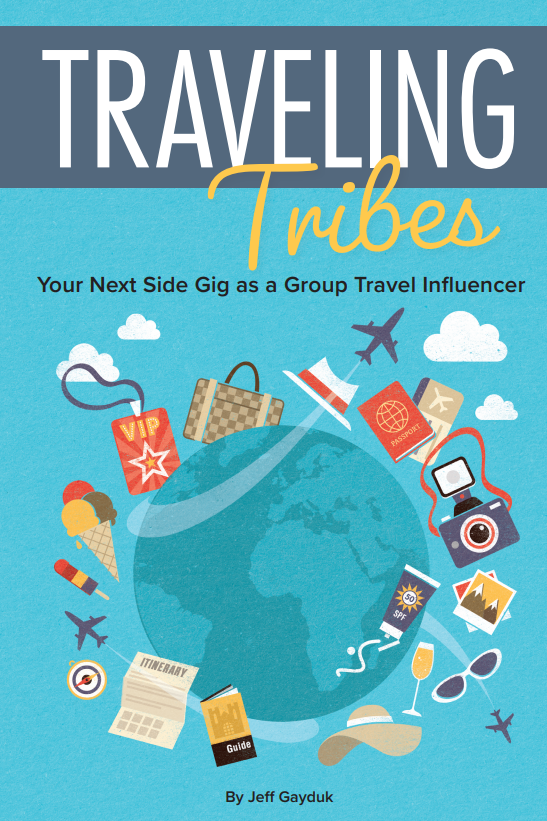Traveling Tribes Podcast
Your Next Side Gig as a Group Travel Influencer Starts HereOur Podcast Episodes
May 8, 2025 • In this episode, we sit down with Marica Mackenroth Brewster, CEO of Von Mack Agency, a travel-centric strategic marketing agency to explore how travel brands can achieve breakthroughs by embracing more strategic, scalable approaches. Marica shares real talk on influencer trends, overhyped AI, and why tourism pros need to prioritize operations… Apr 10, 2025 • In this episode of the Traveling Tribes Podcast, host Jeff Gayduk sits down with longtime friend and travel industry pioneer Jonathan Zuk—dubbed by Jeff as the most interesting man in travel. From a chance reconnection in Salt Lake City to a deep dive into Jonathan’s game-changing concept of guaranteed mini-tours,… Feb 13, 2025 • In this episode of Traveling Tribes, we sit down with Jake Steinman, founder of North American Journeys and the TravelAbility Summit, to explore a critical yet often overlooked segment of the travel industry—aging and accessible travel. Jake shares his journey from leading a media and events company focused on inbound… Jan 9, 2025 • In this episode, Jeff Gayduk sits down with Kai Boysan, CEO of Flix North America, to explore the evolution of long-distance bus travel and its integration into the broader transportation network. Kai shares his journey from Turkey to the U.S., offering unique perspectives on business practices across continents and discussing… Oct 31, 2024 • In this episode of Traveling Tribes, host Jeff Gayduk welcomes Fred Ferguson, the new President and CEO of the American Bus Association (ABA). Fred, a seasoned industry professional with deep roots in tourism and public policy, shares his journey from his upbringing in the tourism-driven town of Park City, Utah,… Sep 5, 2024 • In this episode, we sit down with Shirley, a leading expert in group travel at Goway, to discuss the latest trends in the industry. We dive into the growing appeal of multi-generational family trips, special interest groups, and the increasingly adventurous destinations these travelers are seeking. From families jetting off… Aug 22, 2024 • Join Jeff Gayduk on this episode of the Traveling Tribes podcast, where he sits down with special guest Paula Reynolds, founder of Paula's Concierge Tours. With over 15 years in the industry, Paula shares her journey from California's wine country to the historic cities of the East Coast. They discuss… Aug 1, 2024 • In this episode of the Traveling Tribes Podcast, host Jeff Gayduk sits down with Karen Trevino, President and CEO of North Little Rock Tourism. The conversation dives into Karen's illustrious career and her recent induction into the Arkansas Tourism Hall of Fame. Karen shares her journey, beginning at the Arkansas… Jul 11, 2024 • In this episode, host Jeff Gayduk reconnects with an old friend and industry veteran, Michael Lundquist, now with Croisi Europe, a family-owned river cruise company based in Strasbourg, France. With nearly 50 years in the business, Croisi Europe boasts a diverse fleet of over 50 ships and 170 itineraries worldwide,… Jun 27, 2024 • In this episode of the Traveling Tribes podcast, host Jeff Gayduk interviews Luisa Mendoza of Global Tourism and Sports Entertainment (GTSE). Luisa shares her experiences at IPW, the largest tourism trade show in the U.S., and her recognition at the Women in Tourism event. She reflects on her family's immigration…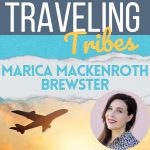

Traveling Tribes with Marica Mackenroth Brewster
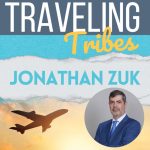
The Most Interesting Man in Travel: How Jonathan Zuk Revolutionized U.S. Mini-Tours
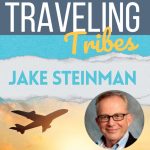
Jake Steinman - Founder of Travel Ability
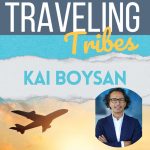
Kai Boysan, CEO of Flix North America
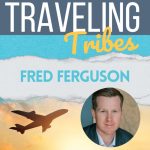
47: Fred Ferguson CEO of ABA
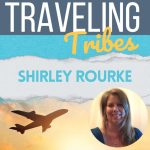
46: Shirley Rourke from Goway
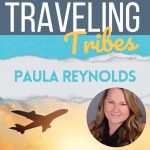
45: Paula Reynolds from Paula's Concierge Tours
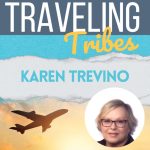
44: Karen Trevino from North Little Rock CVB

43: Michael Lundquist from Croisi Europe

42: Luisa Mendoza from GTSE
Listen Where You Get Your Favorite Podcasts

